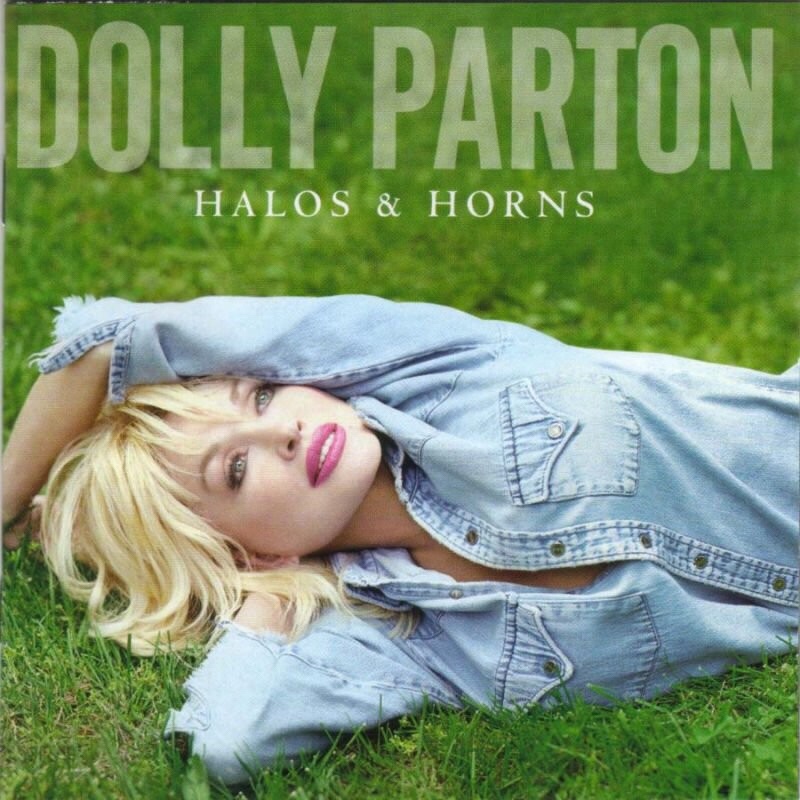Dolly’s final instalment of her bluegrass trilogy marked a shift to a lighter, more personal sound, a subtle move mirrored in the glamorous cover picture and the fact that the songs, bar two covers, were all original solo writes. Bluegrass goes pop, Dolly style.
Starting with the stunning title track Dolly sounds as angelic as ever, understanding that dichotomy we all have in our spirit. Her compassionate, clear eyed view of human behaviour makes her such a compelling songwriter and her eye for truth has never dimmed.
Sugar Hill was inspired by the name of her record label, bringing out a brilliant hoedown that feels like you’re wandering the mountains with her. Not For Me is an atmospheric, softly sung ballad about the mournful despair of a life unfilfilled. A welcome return to her darker songwriting style of those sixties albums.
As well as bluegrass there are two epic gospel songs on the album, both written in response to the 9/11 terrorist attacks. Hello God is seeking help, questioning, wondering about the existence of god in the face of such atrocities. Raven Dove is another biblical inspired song which references the pain Dolly felt in the aftermath of the attack, hoping for the symbol of peace to return to Earth. Both songs perhaps suffer slightly from the overblown production style but the intent is worthy. Her renewed focus on faith would directly lead to her next album ‘For God and Country’.
If is a cover of the old Bread song, played beautifully. There are no folk or traditional songs on the album but recasting these seventies songs in the bluegrass style offers us instead more of Dolly’s own musical tastes.
Her new version of Shattered Image is interesting, with Dolly taking time to reflect back on her public image from the perspective of middle age. She acknowledges the personal pain of dealing with those who criticise her looks, sounding as brutally real and honest as the first time she sang it in the seventies. Times change but the cruelty remained.
Interesting then that twenty years later I’ve seen much more acceptance of Dolly’s appearance, perhaps now she’s even praised for how good she looks which shows you how attitudes have changed towards plastic surgery. Unfortunately many younger artists are still routinely shamed for things like Botox and face augmentations which Dolly has done for thirty years. Hopefully they won’t have to wait until they’re in their seventies for people to shut up and stop offering their opinion. What this song captures so well is the importance of just letting people live. After all how someone looks is no reflection of you – how you judge them is.
These Old Bones has Dolly back using character voices to bring to life an old story of an Appalachian Woman. Here ‘old Bones’ lives in a mountain shack and tells fortunes. Along with Sugar Hill these two songs were used as inspiration for episodes of her Netflix series. I must say I think it would be a better song without her using a funny ‘mountain’ voice (inspired by her mother) but the wisdom is all Dolly: the magic is inside you. There ain’t no crystal ball.
What a Heartache is another song from her catalogue, this time Eagle When She Flies. A beautiful version, and a chance for Dolly to show how well her voice has aged. On I’m Gone the band lets loose in an absolute riot of a divorce song. She’s full of sass, getting her name changed back and ready for freedom from her abusive husband.
Dagger Through the Heart uses old ballads as the inspiration, with the lyrics focusing on the cheating theme of classic country music. The next song If Only also harkens to those days of sweepingly sad country music ballads.
John Daniel is an upbeat song which celebrates a charismatic preacher, a kind of visionary Jesus like young man who spoke the good news in a way that connected with the narrator of the song.
Dolly finishes with a cover of Stairway to Heaven, which sounds great in this bluegrass style. Of course Dolly once ripped off this song in quite spectacular fashion back in the 70s on ‘We Used To’ so she probably owes them this cover in return. She ends with a call and response gospel choir.
On ‘Halos and Horns’ Dolly moves beyond the traditional, blending her personality and songwriting with the bluegrass and gospel tradition. A fitting and celebratory end to her mountain music trilogy.
I am working on reviewing all of Dolly Parton’s solo albums in order. Here is a link to a list of the albums I have reviewed so far: https://highwayqueens.com/2021/03/03/dolly-partons-discography-album-reviews-list/

Leave a comment